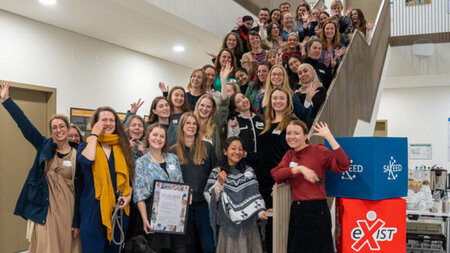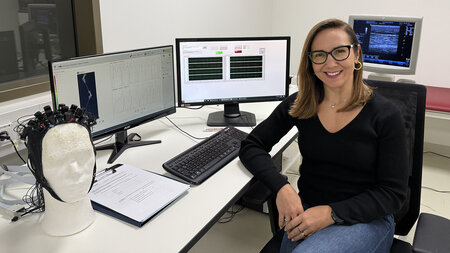Eggers, Holger ; Knopp, Tobias ; Potts, Daniel : Field Inhomogeneity Correction based on Gridding Reconstruction for Magnetic Resonance Imaging
- Author(s):
-
Eggers, Holger
Knopp, Tobias
Potts, Daniel
- Title:
- Field Inhomogeneity Correction based on Gridding Reconstruction for Magnetic Resonance Imaging
- Electronic source:
-
application/pdf
- Preprint series:
- Technische Universität Chemnitz, Fakultät für Mathematik (Germany). Preprint 10, 2006
- Mathematics Subject Classification:
-
42A38 [ Fourier and Fourier-Stieltjes transforms and other transforms of Fourier type ] 44A35 [ Convolution ] 92C55 [ Biomedical imaging and signal processing ] 65T50 [ Discrete and fast Fourier transforms ] 65R10 [ Integral transforms ] - Abstract:
- Spatial variations of the main field give rise to artifacts in magnetic resonance images if disregarded in reconstruction. With non-Cartesian k-space sampling, they often lead to unacceptable blurring. Data from such acquisitions are commonly reconstructed with gridding methods and optionally restored with various correction methods. Both types of methods essentially face the same basic problem of adequately approximating an exponential function to enable an efficient processing with Fast Fourier Transforms. Nevertheless, they have addressed it differently so far. In the present work, a unified approach is proposed. An extension of the principle behind gridding methods is shown to permit its application to field inhomogeneity compensation. Based on this result, several new correction algorithms are derived from a straightforward embedding of the data into a higher dimensional space. They are evaluated in simulations and phantom experiments with spiral k-space sampling. Compared with existing algorithms, one of them promises to provide a favorable compromise between fidelity and complexity. Moreover, it allows a simple choice of key parameters involved in approximating an exponential function and a balance between reconstruction and correction accuracy.
- Keywords:
- Magnetic resonance imaging, image reconstruction, gridding, field inhomogeneity, off-resonance correction,
conjugate phase reconstruction, iterative reconstruction, spiral imaging
- Language:
-
English
- Publication time:
- 6 / 2006





